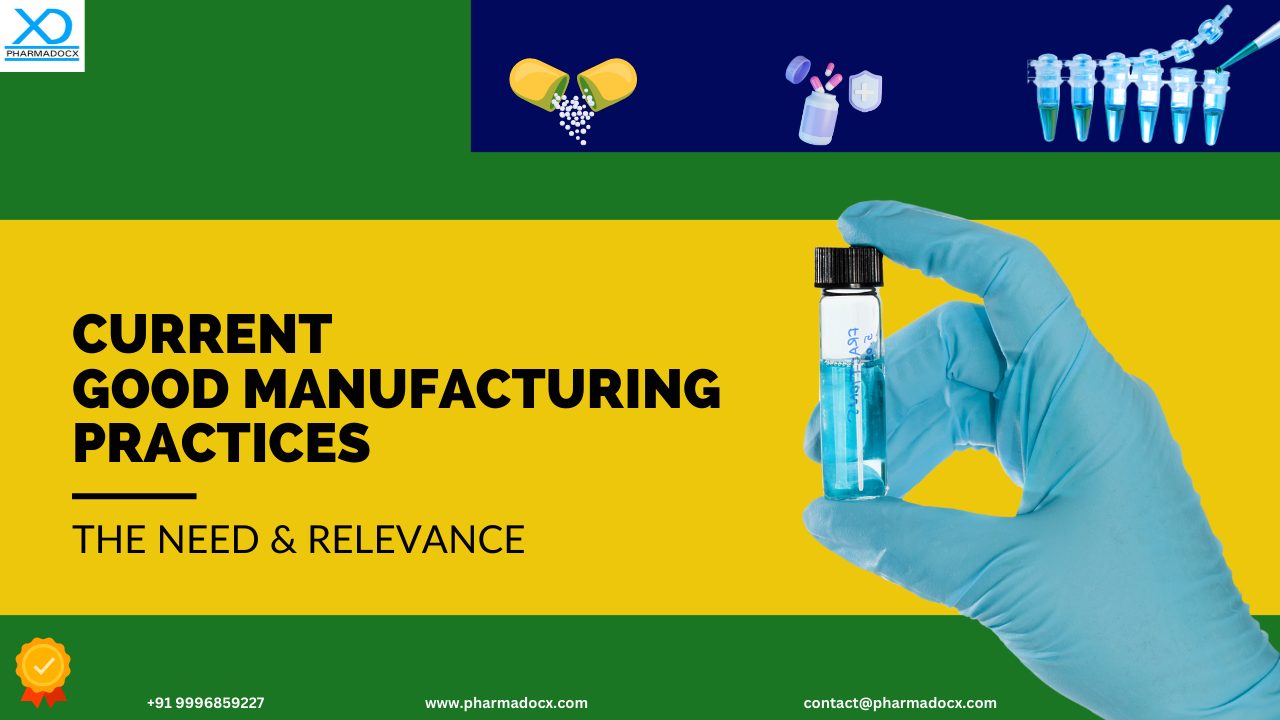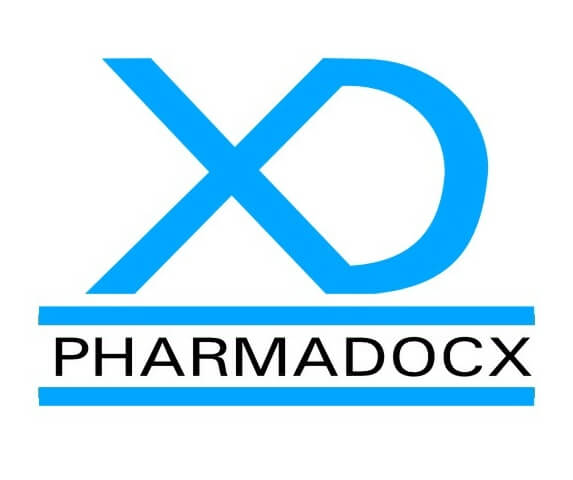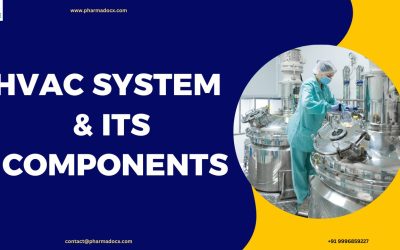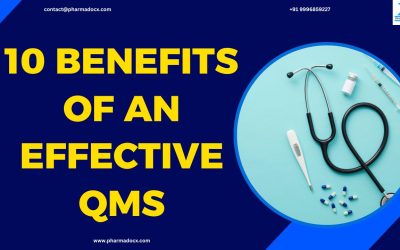Current good manufacturing practices (cGMPs) are a set of guidelines for various products, including biologics, drugs, medical devices, and food. The specific cGMP regulations and guidelines vary depending on the specific product category. In this blog, we will focus on cGMP in pharmaceutical industry.
What is cGMP or current good manufacturing practices in pharma?
Current good manufacturing practices provide a robust framework of guidelines regulating every step of the drug manufacturing process. Every aspect from raw material procurement to final product distribution is strictly regulated. The goal is to deliver safe, high-quality, and effective pharmaceuticals to consumers. By complying with current good manufacturing practices, companies can reduce the risk of product defects/contamination, thereby meet regulatory requirements. Thus, cGMP guidelines help consistently manufacture high-quality, safe, and effective pharmaceuticals.
The cGMP guidelines require the establishment of a strong quality management system for detecting and investigating product quality deviations. Furthermore, reliable testing laboratories will be required. Additionally, high quality raw materials need to be procured and robust operating and manufacturing procedures have to be established. By referring to specified guidelines, manufacturers can incorporate scientifically sound design, processing methods, and testing procedures into their activities.
Notably, cGMP in pharmaceutical industry presents the basic regulatory requirements. However, drug manufacturers may use further comprehensive quality systems and risk management approaches over and above the specified basic requirements.
The “c” in cGMP stands for “current”. Hence, cGMP in pharmaceutical industry requires pharma companies to use updated and current controls, technologies, systems, methodology, and equipment. Furthermore, it highlights that equipment and technologies used to prevent contamination and errors in the past may not be sufficient currently. Hence, pharmaceutical industry cGMP outlines a proactive approach for ensuring safety and quality of pharmaceuticals before they reach consumers.
Pharmaceutical industry cGMP guidelines govern the following aspects:
- Raw materials: Various raw materials are required for manufacturing pharmaceuticals and their formula may vary slightly within the specified range. Furthermore, it is important to evaluate whether the supplier of the raw materials meet cGMP standards.
- Manufacturing process and quality controls: cGMP in pharmaceutical industry requires the manufacturing process be designed in a manner that can guarantee quality of the drug. From the initial design of the process to validation and ongoing monitoring should be per the regulatory guidelines. The manufacturing process and equipment should be accurate and up-to-date with the latest applicable guidelines. Moreover, any alterations in the drug manufacturing process should be carefully evaluated for their potential impact on drug quality. Additionally, comprehensive quality control and testing program are required to ensure the manufacturing processes and products are cGMP compliant. Periodic testing of raw materials and finished products is required to verify whether they meet quality standards. Furthermore, the workflow procedures should be well documented.
- Manufacturing facility, environment, and equipment maintenance: The manufacturing facility and environment will impact the safety and quality of the manufactured drug. Prior to operation of the plant, all equipment should be calibrated per regulatory guidelines and standard operating procedures. The drug manufacturing, processing, and packaging environment should be free of dust, pathogens, and contaminants from other drugs.
- Staff training and readiness: All individuals involved in the drug manufacturing process should be adequately qualified to do their jobs. They should be aware of all cGMP requirements and expectations. Appropriate staff training is a part of the cGMP requirement. Personnel are required to pay attention to personal hygiene and sanitation. They should be aware of their role in the manufacturing process and what is expected from them.
- Finished product: The manufactured drug must be complaint with cGMP regulations. The manufacturer is responsible for primary and secondary packaging and proper labelling of the product prior to marketing. Additionally, product recalls or returns should be handled per industry regulations.
Additional requirements of cGMP over GMP
In addition to the incorporation of the term “current” and the need for staying updated, cGMP has some further requirements. In case of GMP, compliance with the very basic industry standards is required. cGMP in pharmaceutical industry demands compliance with advanced and current rules and regulations. cGMP goes the extra mile for compliance with latest technologies and updated guidelines. cGMP requires investment in state-of-the-art technologies and additional testing to meet the latest standards and requirements.
What does pharmaceutical industry cGMP aim to improve?
cGMP regulations and guidelines are ever evolving. With progress in science and technology, cGMP regulations incorporate latest manufacturing methods, updated risk-based approaches, and data integrity practices. The pharma industry is dynamic. Thus, it is vital that regulations continuously evolve and adapt to cope with the dynamic pharma industry landscape. cGMP guidelines are constantly updated to enhance product quality and promote patient safety. Highest drug standards and protection of public health are the primary aims of pharmaceutical industry cGMP.
cGMP in pharmaceutical industry aims to improve the following:
- Regulatory compliance
- Patient safety
- Quality assurance
- Product consistency
- Public health
- Traceability
- International trade
- Research and development
How to ensure cGMP compliance in pharmaceutical industry?
- Evaluation and inspection of raw material quality. It is important to vet the raw material supplier’s cGMP regulatory compliance.
- Resource and manufacturing process management per cGMP guidelines
- Internal controls should be in place to minimize deviations from acceptable manufacturing process standards and quality benchmarks
- Effective internal communication between management and staff
- Assignment of roles to specific staff members for ensuring cGMP compliance. Additionally, each personnel with be responsible and accountable for the role they play.
- Robust quality management and testing protocols for identifying deviations and quality lapses
- Periodic cGMP training for employees to keep them updated with the latest guidelines
- Proper documentation and validation of processes and stringent recordkeeping policies are required
- Regular review of records and reports and evaluation of compliance
- Product lifecycle management
- Regular internal audits for regulatory compliance
- Pharma companies should plan ahead and prepare for cGMP manufacturing process audits and inspections. Comprehensive documents evidencing compliance in processes, procedures, and quality control measures should be properly compiled. As regulatory authorities review these documents, it is vital they are up-to-date and accurately reflect the manufacturing facility’s operations.
The need and relevance of cGMP in pharmaceutical industry
Pharmaceuticals are the backbone of the healthcare system and have a pivotal role in patient outcome. To determine whether drugs are safe and effective, patients and healthcare professionals solely depend on manufacturer’s level of regulatory compliance. There is no other means to evaluate drug quality and efficacy. Thus, the need and relevance of cGMP in pharmaceutical industry cannot be empathised enough.
cGMP regulations set strict quality standards for pharma industries, from raw material sourcing, manufacturing to the finished products. By setting stringent regulations for manufacturing, processing, testing, and quality control, cGMP prevents entry of substandard products into the market. Thus, cGMP is vital for patient safety and improved patient outcomes.
Pharmaceutical industry cGMP ensures
- The manufacturing process is per updated regulatory standards
- Manufacturing facilities and environment conform to all hygiene practices
- Manufacturing machinery and equipment are calibrated for safe production
- Personnel have proper training to operate the facility per cGMP guidelines
- Manufacturing process and facility operation are well-documented and reliable
Thus, cGMP regulations ensure the highest quality is ingrained into the design and every step of the manufacturing process. cGMP compliance assures facilities are in excellent condition, equipment is properly maintained and calibrated, employees are qualified and trained, and processes are reliable and reproducible.
Drugs that are manufactured in compliance with cGMP guidelines instil confidence in patients regarding drug quality, efficacy, and safety.
Current good manufacturing practices: A vital regulatory requirement
By complying with cGMP guidelines, pharma companies can demonstrate their commitment to excellence and patient wellness. cGMP in pharmaceutical industry is required for protection of public health. We at Pharmadocx Consultants will provide step by step guidance for you to easily comply with the latest cGMP guidelines. Call/Whatsapp on 9996859227 or drop an email at [email protected] and we will be happy to provide all the necessary support.





